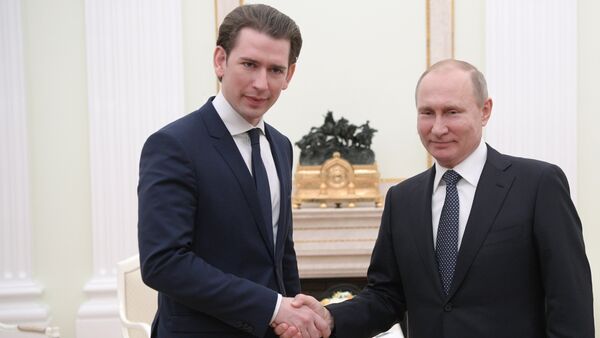Austrian Chancellor Sebastian Kurz has described patching up Russian-European relations as his government’s top priority for his next year in the office.
“In the foreign policy, the major challenge for us as the European Union will be easing tensions with Russia along with de-escalation of the conflict in Ukraine, as we can reach the long-lasting peace on our continent only together with Russia, not playing against it”, he told journalists during 2018’s concluding press conference.
Another major goal for the EU in 2019, Kurz outlined, would be securing free and fair trade around the world. He slammed the US policy as threatening the EU and Austria, an export-oriented country, in particular. He also pointed to Africa’s growing population, China’s economic growth, Brexit and the upcoming European parliamentary elections as other challenges for Vienna’s diplomats.
READ MORE: US Ukraine Rep Urges West to Slap More Sanctions on Russia Amid Kerch Strait Row
A snap Austrian parliamentary election was held in October 2017. The OVP — headed by Kurz, who is currently the youngest head of government in Europe — received 31.5 percent of the vote, while the Social Democratic Party of Austria (SPO) came in second, with 26.9 percent of the vote. The right-wing FPÖ, led by Heinz-Christian Strache, ranked third, gaining 26 percent of votes.
Kurz invited the FPÖ to form a governing coalition, which raised concerns regarding Austria's relations with Brussels and stirred mixed reactions in Germany. It also prompted protests in Vienna, as around 6,000 people gathered to rally against the new government in January.
However, an October poll revealed that 49% of Austrians trust in the government formed by Kurz’s conservatives and the right-wing FPÖ, the local magazine Profil reported. Only 45% of respondents voiced dissatisfaction with the policies of the conservative coalition government, while more than half (51%) of respondents were convinced that Austria is going in the right direction.


